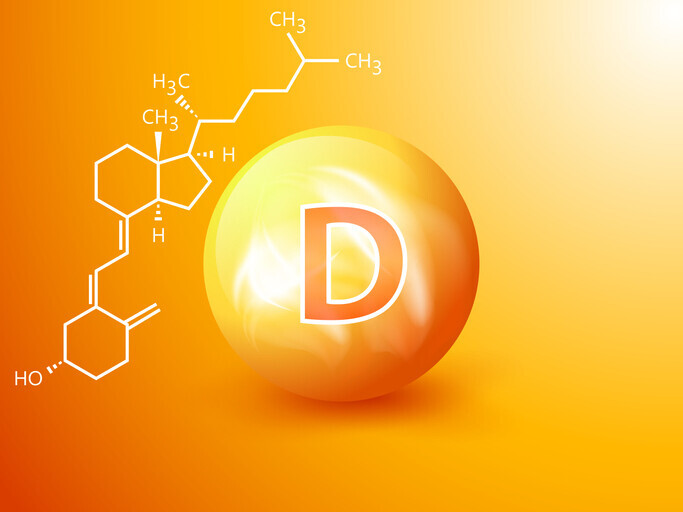hankyoreh
Links to other country sites 다른 나라 사이트 링크
Assessing effectiveness of vitamin D to treat COVID-19 is a question of the chicken or the egg

After a series of studies showed that vitamin D can help prevent COVID-19 and counteract its symptoms, attention is focusing on the efficacy of this essential nutrient.
While vitamin D is known for keeping our bones healthy, could it also prove effective against COVID-19? The question was of particular interest to me because I’d been diagnosed with a vitamin D deficiency in a recent health checkup, so I started reading through the latest research papers and updates.
In a paper published at the end of October, a Spanish research team that surveyed 216 COVID-19 patients found that more than 80% of the patients had vitamin D deficiencies.
In September, a joint team of researchers from the US and Iran carried out a study of 235 patients at a hospital in Iran with serious cases of COVID-19. The study, published in PLOS One, found that the mortality rate was 51.5% lower among patients with sufficient levels of vitamin D than those who were deficient.
It also said that US President Donald Trump was given vitamin D along with various other medications when he was being treated for COVID-19.
But other researchers say that the nutrient’s preventative and therapeutic efficacy is still uncertain and has sometimes been exaggerated. While the PLOS One paper received considerable coverage in the press, its research methods and conclusions have faced questions and criticism. Recently, the journal’s editorial board has started reassessing the paper and cautioned readers not to conclude that vitamin D mitigates severe cases of COVID-19.
While several reports suggest that the nutrient can aid treatment by suppressing inflammation and boosting immunity, such claims have yet to be proven.
One of the reasons for that uncertainty is that assessing the vitamin’s effects in isolation is harder than one might expect. Those effects can vary with age, disease, and environment, prompting continuing questions about which comes first, the chicken or the egg?
It’s not clear whether a vitamin D deficiency causes COVID-19 symptoms to worsen, or the other way around. Perhaps COVID-19 patients end up with insufficient vitamin D because being in the hospital keeps them from getting the sunlight they need to produce vitamin D or for some other reason. In short, correlation has been established, but not causation.
Even so, vitamin D’s potential has been getting more attention during the pandemic. A large-scale clinical test involving 5,000 people in the UK seeks to assess the efficacy of vitamin D. The most extensive repository for clinical trials (tinyurl.com/y4g8wc5r) shows that 59 clinical trials of vitamin D are being carried out around the world in connection with COVID-19.
While the chicken-and-egg question has yet to be answered, some things are clear. Maintaining appropriate vitamin D levels — either through spending more time in the sun or by taking supplements — is good for your health, but taking too much vitamin D is harmful for the body.
By Oh Cheol-woo, lecturer at Seoul National University of Science and Technology
Please direct comments or questions to [english@hani.co.kr]

Editorial・opinion
![[Editorial] Intensifying US-China rivalry means Seoul must address uncertainty with Beijing sooner than later [Editorial] Intensifying US-China rivalry means Seoul must address uncertainty with Beijing sooner than later](https://flexible.img.hani.co.kr/flexible/normal/500/300/imgdb/original/2024/0517/8117159322045222.jpg) [Editorial] Intensifying US-China rivalry means Seoul must address uncertainty with Beijing sooner than later
[Editorial] Intensifying US-China rivalry means Seoul must address uncertainty with Beijing sooner than later![[Column] When ‘fairness’ means hate and violence [Column] When ‘fairness’ means hate and violence](https://flexible.img.hani.co.kr/flexible/normal/500/300/imgdb/original/2024/0516/7417158465908824.jpg) [Column] When ‘fairness’ means hate and violence
[Column] When ‘fairness’ means hate and violence- [Editorial] Yoon must stop abusing authority to shield himself from investigation
- [Column] US troop withdrawal from Korea could be the Acheson Line all over
- [Column] How to win back readers who’ve turned to YouTube for news
- [Column] Welcome to the president’s pity party
- [Editorial] Korea must respond firmly to Japan’s attempt to usurp Line
- [Editorial] Transfers of prosecutors investigating Korea’s first lady send chilling message
- [Column] Will Seoul’s ties with Moscow really recover on their own?
- [Column] Samsung’s ‘lost decade’ and Lee Jae-yong’s mismatched chopsticks
Most viewed articles
- 1For new generation of Chinese artists, discontent is disobedience
- 2[Editorial] Transfers of prosecutors investigating Korea’s first lady send chilling message
- 3[Column] US troop withdrawal from Korea could be the Acheson Line all over
- 4[Column] When ‘fairness’ means hate and violence
- 5Xi, Putin ‘oppose acts of military intimidation’ against N. Korea by US in joint statement
- 6[Exclusive] Unearthed memo suggests Gwangju Uprising missing may have been cremated
- 7China calls US tariffs ‘madness,’ warns of full-on trade conflict
- 8[Editorial] Intensifying US-China rivalry means Seoul must address uncertainty with Beijing sooner t
- 9S. Korea “monitoring developments” after report of secret Chinese police station in Seoul
- 10For Korea’s Justice Ministry, no place is sacred from immigration raids